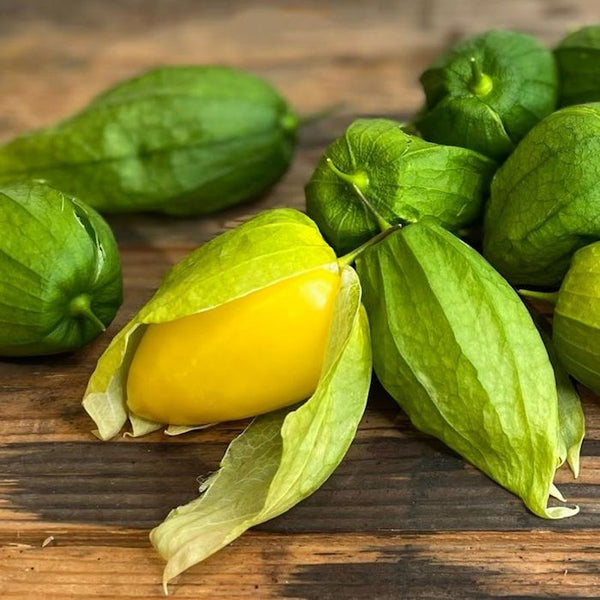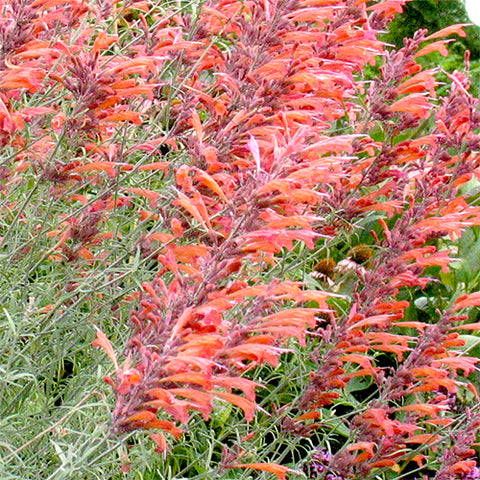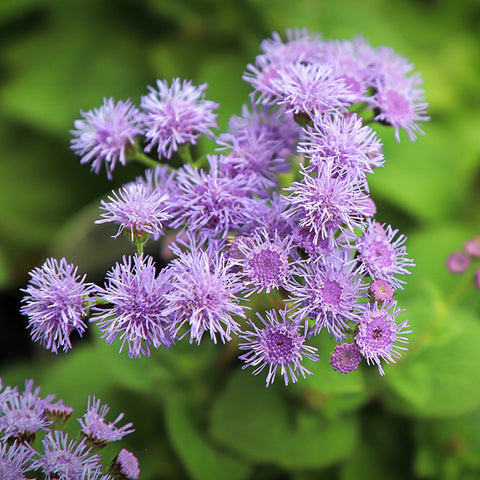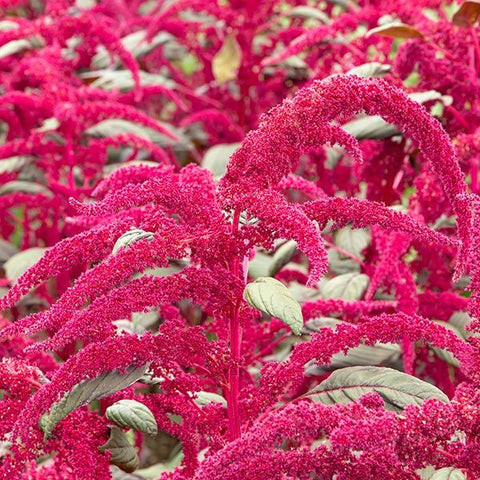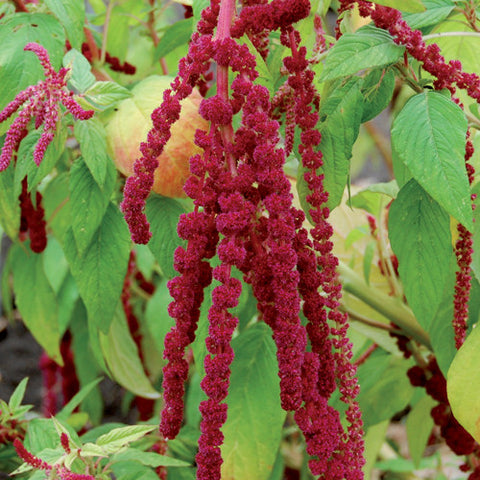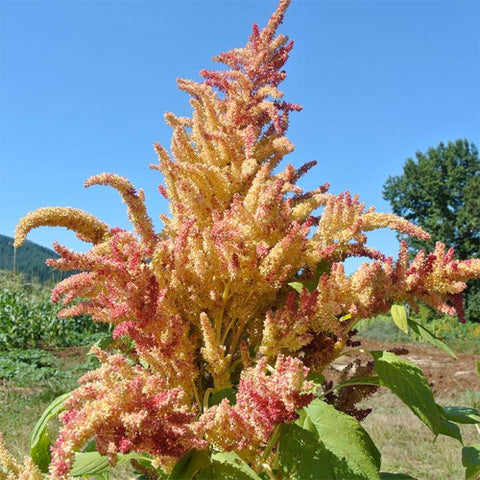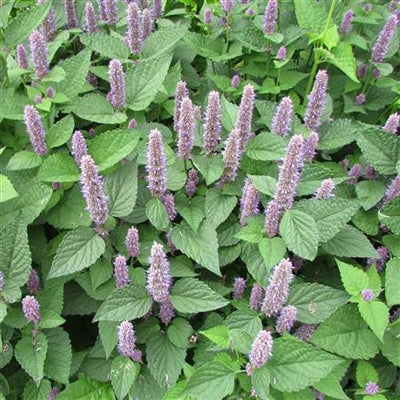Tomatillo, Queen of Malinalco (Organically Grown Seeds)
$4.79
This item may be out of season or currently out of stock. Please check back.
Description: This heirloom selection is so unique with extra-large fruit that can't help but evoke the idea of mango (the shape, size, colour!).
Tomatillos require at least two plants for pollination (fruit production).
Organically Grown/ Heirloom/ Open Pollinated/ Non-GMO
Pack Size: XX
Latin Name: Physalis ixocarpa
Main Uses: Culinary
Days to Maturity: Semi-determinate - 60 days
Exposure: Full sun
Height: 60-70 cm (24 - 30 inches)
Seed Source: Organically grown
Germination: 14 - 21 days at 21 - 25° C.
Sowing: Indoors 4 - 6 weeks before planting out date. It is not recommended to start tomatillos too early, as they get leggy. Apply a kelp fertilizer such as Sea Magic™ from first watering onwards.
Planting depth: Barely covered. Spacing: 2’ inches between plants.
Harvesting: Fruits are ready when they are plump and the husks are splitting.
Growing in Containers: Not well suited for containers, except larger pots such as half barrels.
Fertilizing (Containers): After transplant, avoid high nitrogen fertilizers in favour of balanced compost - this will encourage a better flower set and yield.
Watering (Containers): Water deeply when the top inch of soil feels dry to the touch. Check every day or two during very hot weather.
Growing in Mixed Planters: Not well suited to mixed planters.
Fertilizing (Garden): After transplant, avoid high nitrogen fertilizers in favour of balanced compost - this will encourage a better flower set and yield.
Watering (Garden): Water new transplants regularly to establish roots. Once established, water deeply as required.
Garden Companions:
Vegetable Companions: Peppers, asparagus, carrots, onions and members of the cabbage family benefit from growing near tomatillo plants.
Herb Companions: Basil, mint, chives, sage, parsley and garlic are companion plants to the tomatillo. Growing fragrant herbs as companion plants to tomatillos will repel many common pests.
Flowering Companions: Tomatillo plants are known to attract bees, which are necessary for the plant to produce its fruit, beneficial flowers will increase the likelihood of pollination. Nasturtium, bee balm and marigolds are the preferred companion flowering plants for tomatillos.
Avoid: Pole Beans and Legumes. Tomatillo plants will not do well grown near plants that produce excessive nitrogen (like pole beans and legumes). Fennel and dill planted close to a tomatillo will stunt the plant's growth thereby affecting its health.
Suitability for Indoors: Not suited for indoors.

